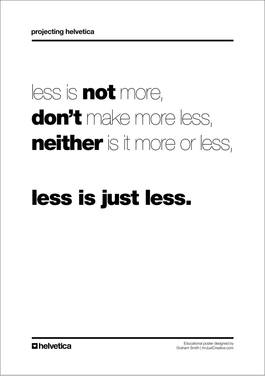More often than not, prevailing wisdom and general laziness lead us to try and take powerful, albeit bloated applications like Outlook and attempt to make them work for us. We learn all the bells and whistles, ignore what we don’t want to use and try to manage our contacts, calendars, tasks and email all in one place. And if you are reading this, chances are that this approach did not work for you either.
Put Your Own Pieces Together
So much of what set the Mac apart was the decentralization, yet integration of everything. Address Book for contacts, iCal for calendars and tasks and Mail.app for email. Each one is highly focused, yet deeply entwined with one another. However even this was not enough. While these solutions are often perfect for casual users, many of these stock applications are just far too limited for power users (or even just for particular geeks such as myself). Thankfully the idea of decentralization took hold with developers and what we’ve seen in the past few years is a renaissance of highly focused, highly polished applications. Apps that were built from the ground up to integrate with both stock and third-party software, enabling users to create their own personal tapestry of productivity.
And How Does One Manage To Do That?
In theory, the goal should be to find a few apps that solve your needs. Pick a calendar, pick a contact manager, pick a word processor and email client, learn them and move on with your life. But honestly, and I’m speaking from personal experience here, it’s the wrong (yet familiar) way to go about it. You are far better off working inside out. Start off by finding your biggest pain point and identifying the absolute perfect application for solving it (as long as that app plays nicely with others). From there go one problem at a time and slowly build your perfect system. For me, that was email and my starting point was Inbox Zero, followed by a switch to both Gmail and Mailplane. For you, that could be tackling your writing projects and you may want to look at apps like nvALT or Scrivener. Perhaps it is constantly forgetting to add things to your calendar, causing you to miss key obligations. If so, quick entry apps like Fantastical can help. Just have an honest conversation with yourself, figure out where you suck and start there.
That Sounds Like A Lot Of Work…
This process will take more applications and take more time, but you’ll quickly begin to notice something. Even though you’re choosing to use more, it will feel (and likely look) like less. The applications only show you what you need, they integrate so seamlessly that you hardly notice switching from one to the other. Many, such as Dropbox, LaunchBar and TextExpander, run in the background and are ubiquitous across your system. Over time this more complicated system feels contoured to your life, to your unique challenges and is far better suited to attacking them. Strange as might sound, it will feel far more a part of you rather than something you are working (or likely fighting) with.
Consider Yourself Warned
There are some risks. Other computers can start to feel unfamiliar and frustrating; you’ll potentially have trouble shutting up about how there is a better way (e.g. this blog post and my entire blog for that matter) and there will be some pieces of software you just cannot avoid. There is also the very real fear that you will end up spending so much time figuring out how to get things done that you never actually get anything done. But as long as you are aware of the realities and the potential side effects, you’ll be fine. Combine this awareness with some brutal honesty about where you fall short and start building a computer that might include a lot, but is so personal that you’ll hardly care.
